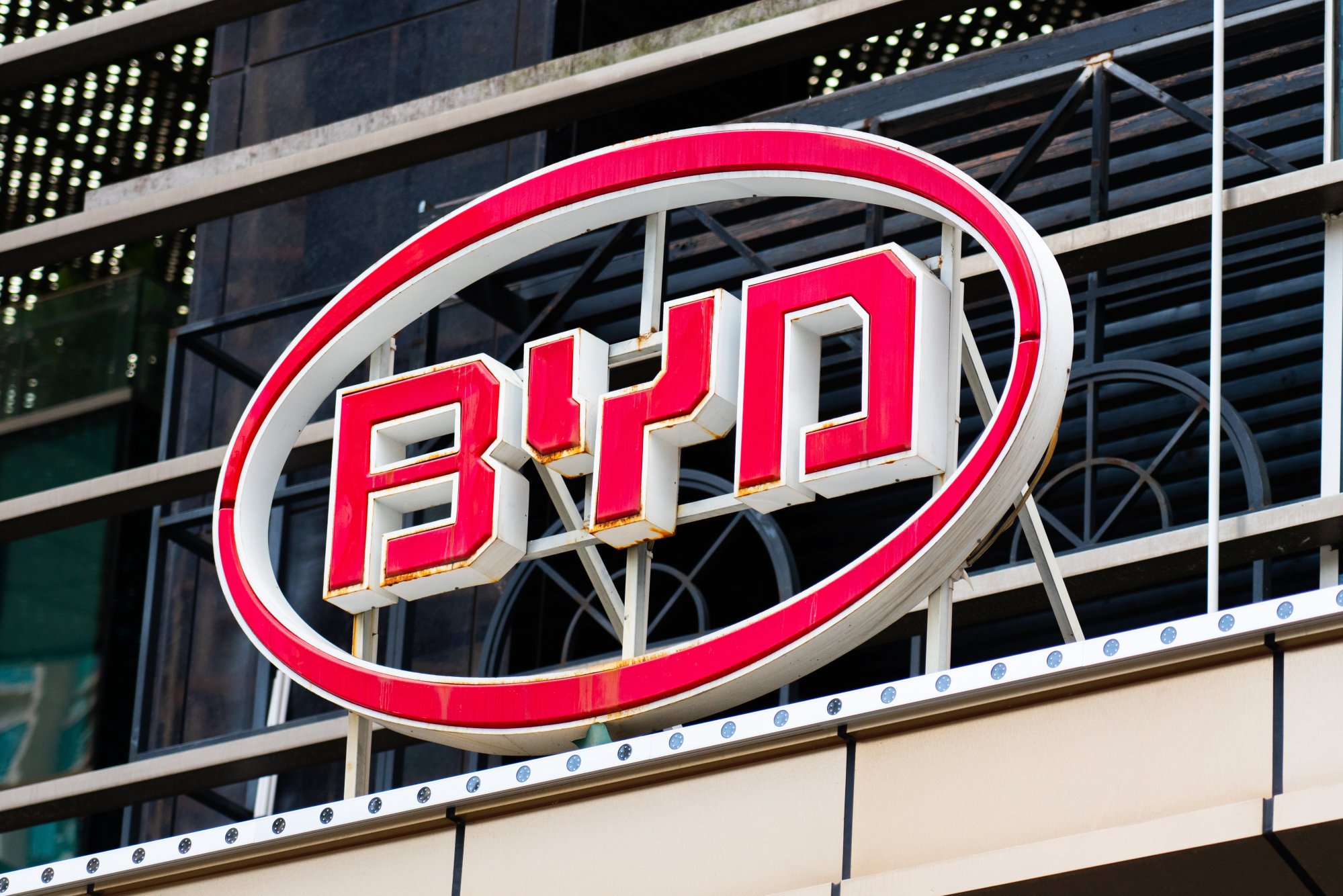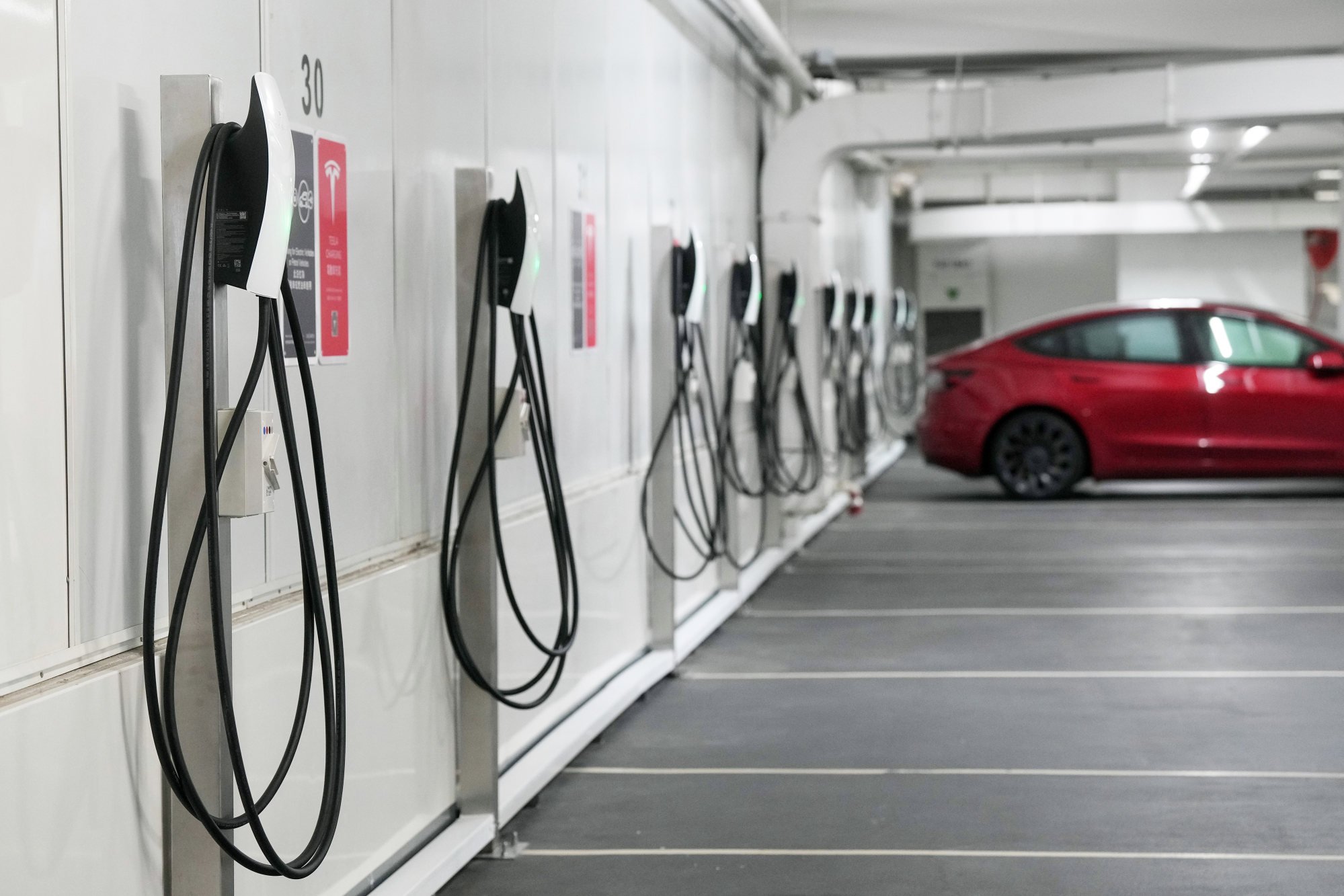Will Hong Kong’s leaner tax breaks for EVs drive buyers to cheaper models? Industry leaders predict boost for lower-priced, mainland-made cars
Hong Kong car salesman Danny Chan Kwok-leung clinched five orders for electric vehicles (EVs) on Wednesday, the day Financial Secretary Paul Chan Mo-po unveiled his budget.
The 55-year-old sales team leader for a European maker was dismayed when the minister announced he was slashing tax incentives for green vehicles by 40 per cent from April 1, as part of wider efforts to tackle the deficit.
The HK$287,000 (US$36,660) tax concession for those who trade in their internal combustion-engine cars will be cut to HK$172,500, and high-end EVs priced at HK$500,000 before tax, will no longer be eligible for tax breaks under the “affordable users pay” principle.
“We have four models to sell in Hong Kong ranging from about HK$500,000 to HK$2 million. After the new tax regime is implemented in April, we’ll have only one model that allows buyers to enjoy the tax incentives,” salesman Chan said.
What’s the buzz over Hong Kong budget? Is it time to buy flat, who pays more tax?
What’s the buzz over Hong Kong budget? Is it time to buy flat, who pays more tax?
He was worried that EVs would become less appealing to buyers.
“Take an EV costing HK$900,000. Buyers will no longer get a concession and must pay the first registration tax. It poses a significant burden for buyers,” he said.
Other industry players told the Post the changes were likely to move buyers to consider lower-priced EVs, and they pointed out there was plenty of choice ranging from mainland China-made BYD cars going for HK$198,000 to Japanese Nissan models priced at HK$269,800.
This could mean better sales for Chinese carmaker BYD’s Dolphin Dynamic Standard Range.

They felt that wealthy buyers of top-end makes were unlikely to be deterred by the reduced tax breaks. Some of the highest-priced electric cars include the Audi Q8 e-tron 50 quattro priced at HK$1.08 million and the Porsche Taycan Turbo S going at HK$2.93 million.
The tax incentives were introduced in 2018 to support Hong Kong’s drive to encourage EVs, with the government pledging to stop registering petrol-powered cars – including hybrids – from 2035.
The incentives have been extended for two years, but from April the maximum first registration tax concession for electric private cars will be slashed from HK$97,500 to HK$58,500.
The proportion of EVs among all newly registered private cars soared from only 6.3 per cent in 2019 to 64.3 per cent in the first eight months of last year, according to official data.
BYD launches low-price plug-in hybrid, sparking price war in China
BYD launches low-price plug-in hybrid, sparking price war in China
Tax concessions totalling HK$14 billion were granted from February 2018 to August last year.
With the latest changes, EV tax incentives are expected to cost the government HK$3.1 billion per year.
Authorities granted tax concessions to 34,445 EVs between 2020 and 2022 and almost all buyers replaced petrol-powered vehicles.
Tesla had the lion’s share of 23,820 EVs sold over that period, with 70 per cent of the market, followed by Mercedes-Benz (3,174), BMW (1,750), Hyundai (967) and Nissan (759).
By the end of December 2023, there were 76,395 EVs registered in the city, accounting for 8.3 per cent of all vehicles. The Transport Department has approved 286 EV models from 16 economies.

Ringo Lee Yiu-pui, honorary life president of the Hong Kong, China Automobile Association, said considering the government’s financial situation, the new tax arrangements were acceptable as EV buyers had a wider range of choices now.
Tesla buyers could still get tax rebates on the Model 3 long range, which sold at HK$328,300, while those who bought the Model Y long range priced at HK391,100 would enjoy fewer tax incentives.
“Those who buy EVs for no more than HK$300,000 will still enjoy full tax reductions under the new arrangement. However, people who buy higher-end models priced at over HK$500,000 also won’t mind the lack of tax incentives,” Lee said.
“I believe the new arrangements will not stop motorists who want to go green from buying EVs.”
Hong Kong government must lead charge to keep EV sales up: campaigners
Hong Kong government must lead charge to keep EV sales up: campaigners
Eric Wong, chairman and CEO of Richburg Motors, the Hong Kong dealer of British marque MG Motor, was optimistic about selling 400 EVs this month, before the tax changes kick in.
“We anticipated that the government would increase revenue through EV taxation and ordered more inventory,” he said.
He has MG ZS models priced between HK$217,000 and HK$249,000 which will still be entitled to tax incentives from April.
The brand also has a convertible electric sports car and a seven-seater priced at more than HK$500,000, but Wong was not concerned that sales would slump after April and was banking on scoring with price and quality.
Mercedes-Benz said it welcomed the green transport initiatives and support for new energy vehicles in the budget blueprint.
EV makers swarm to Hong Kong, lured by government support, rapid adoption rate
EV makers swarm to Hong Kong, lured by government support, rapid adoption rate
It said it had a wide range of car models available for those who wished to beat the March 31 deadline to enjoy the current tax incentives before the changes kicked in.
It advertised on social media that its EQB model was priced at HK$499,000 and the EQE 360 model was going for HK$699,000 after the current HK$287,000 tax rebate.
Alicia Yuen Man-kwan, 36, an advertising agency account director, said she and her husband were considering switching to a Tesla EV before April to avoid paying more when the reduced incentives kicked in.
But time was running out because they needed a vehicle scrapping certificate for their petrol-powered car before being able to buy a new EV under the government’s one-for-one replacement scheme.
“I regret we didn’t do it sooner because the price difference is quite big and that will be a huge help for other bills,” she said.


